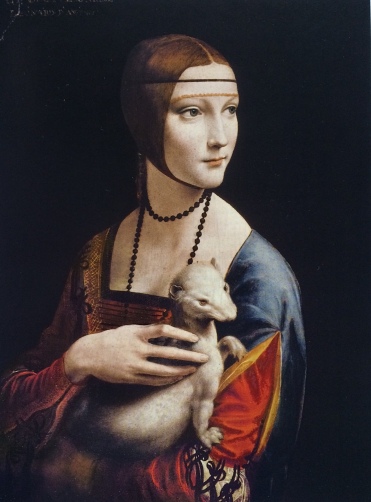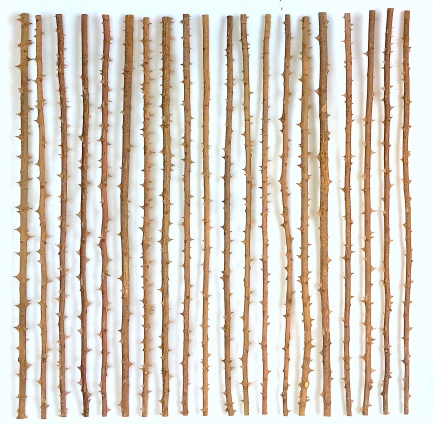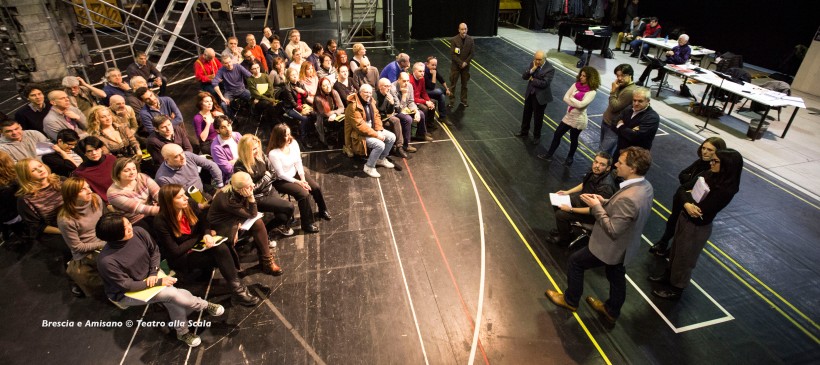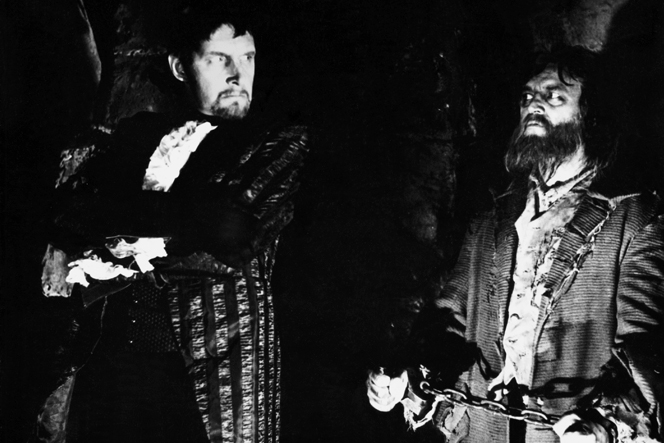DON GIOVANNI
W.A.Mozart
It seems hardly necessary to talk about Don Giovanni, this character with past life captured in dramas by Tirso de Molina, Molière and an afterlife in plays from Grabbe, Horvath, Frisch or Anouilh to the most present day dramatists. This relatively late developed archetype plays a huge role -a trivial one- in everybody’s imagination and conception of the human psyche.
But who is Don Giovanni really? is he the womanizer, is he the epitome of machismo or even an egalitarian who shares his love regardless of social status? And who is he in Mozart’s Opera? These are the question which lead me developing the production. We assume more about him than we know. And this is this characters strength. We encounter Don Giovanni on a day were all of his assumed qualities fail. Leporello will not be adding even one single number to the various women to his famous catalogo before Don Giovanni vanishes from the face of the earth.
Brought to life by Mozart humane musical genius, Don Giovanni is far from being an abstract concept. To understand his power, it is necessary to drive the focus away from the title role, towards the people which DaPonte has gathered around him. What brings these people together? what effect does a character like Don Giovanni have on their lives? as individuals and as a group?
I am very much looking forward to staging this opera, as Mozart –besides Janáček and Monteverdi- is one of the composers whose all-encompassing musical approach to the stage brought me to opera. This will continue the line of Mozart Opera I directed: Figaro, Entführung, and Clemenza.
My production on Don Giovanni will open the 18thDaegu Opera Festival. The Daegu Opera House is the only opera house in Korea, which is built and used exclusively for music theatre. I will have the pleasure to work with such excellent singers in the cast such as Dong-Hwan Lee in the title role and Kwangchul Youn as Leporello. The opera will be conducted by the Hungarian Balász Koczár.
Harry KUPFER
(1935-2019)
On the last day of the outgoing year the unexpected death of Harry Kupfer had to be deplored.
We are mostly unaware that a lot of what is being taken for granted on stage today in music-theatre is owed to his legacy; 60 years of dedicated work developing of music theatre. He was the last of the few influential directors who were still questioning in every production the difficult aesthetic problem of a singing human being on stage, never taking the fact for granted.
I had the pleasure working with him from his first production after the fall of the wall for the Komische Oper Berlin in 1990 (Idomeneo) until his last production at the Staatsoper unter den Linden 2019 (Macbeth); altogether more than 20 shows including the exceptional complete WagnerCycle in Berlin with Barenboim/Schavernoch.
It must have from his childhood and adolescence Berlin at the time around the end of the second world war, from where he drew his humane approach to the opera; skeptically scrutinizing them and never losing the social aspect of the works out of sight and -unlike many of the contemporary directors- and in his theatrical language acknowledging the necessity of responsibly communicating with the audience. Highly sensitive to music, Kupfer influenced me with his serious approach in analyzing the piece exclusively from the score, never letting a show drift into indifferent entertainment, as well as his minute preparation of rehearsals and attention to in all aspects of “Personenführung” and his mastership in working with the chorus.
It is a pity that he wasn’t able to undertake his next project the staging of “Fra Diavolo” with young singers in castle Rheinsberg, as there still is so much that younger generations could have benefited from working from him.
LA FAVORITE
Gaetano Donizetti

For the Liceu in Barcelona and the Maggio Musicale in Firenze I will restage Donizetti’s opera in a production originally directed by Ariel García Valdés in 2002. The new show -eliminating all previous cuts- will now present the whole opera (apart from the ballet in the II act) in a rare, unabridged version.
The story, set in medieval Spain, is nothing more then a story of three people, isolated in themselves and experiencing a lack of reason for their existence and dissatisfaction with their current state. It is the story of a clergyman who feels the need to seek for fame in war, a king who would prefer not to rule, a woman who is torn between benefiting from being the mistress of a king and searching for an independent life she can choose for herself.
This is Donizetti’s first opera written as grand opéra for the Académie Royal de la Musique. Approaching a French style without loosing any of his Italianate qualities, Donizetti shows great skill in writing effective choruses scenes and very delicately subtle orchestration whilst still maintaining the simplicity of his beautiful melodic lines. Conductors will be Fabio Luisi (Florence) and Patrick Summers (Barcelona), the set and costumes are by Jean-Pierre Vergier. The opera will be performed in its original French langauage.
La favorite | Teatro del Maggio 22,25, 28, February and 3 March
La favorite | Liceu Barcelona 8, 10,11,13,14,16,17,19,20,21,22 and 24 July
KATJA KABANOVA
Leoš Janáček

At the Grange Festival, a summer festival, located beautifully in the grounds of a stately home in Hampshire near London, I will be directing Leoš Janáček’s Katja Kabanova in the near future.
This is one of the first operas I ever saw and it definitely had a huge impact on my passion for music theatre. Unlike any other composer apart from Mozart, I feel in Janacek’s music a strong desire to find a language to express his deeply felt, unconditional humanity.
Katja, similar to many other characters in Janáček’s operas, fenced in by the boundaries set by a environment whose dead heartedness is founded upon ignorance and fear, desires nothing else than to express her sensitive and loving spirit freely. As long as the conditions produced by the society around her prevail, people like Katja will go under.
FIDELIO
Beethoven-Felsenstein-Eisler
In Germany’s national history museum, the DHM I will be giving a talk introducing the screening of Beethovens Fidelio in a version arranged by Walter Felsenstein in collaboration with Hanns Eisler from the year 1956. This will be the conclusion of a series of opera films in the Zeughauskino which screens films and cinematographic approaches to music-theatre including the 1915 C.B.DeMilles version of Carmen and the 2007 portrait of the Staatsoper’s Generalmusikdirektor Otmar Suitner. This series of films was scheduled to coincide with the re-opening of the Staatsoper, now postponed. Fidelio will be shown on the 30th September at 20:30.
The full program can be found here.
DON CARLO
Giuseppe Verdi
“A very convincing and precise performance, … , and the great effort of the ensemble and the soloist was by no means in vain. Don Carlo is a great feat of the HNK Opera that attracted several foreign curious curious artists and professionals in Zagreb.” Jutarni list
Together with the conductor Elio Boncompagni, Italo Grassi set designer and Stefan Dietrich costume designer I am currently working on a production of Don Carlo for the National Theatre in Zagreb. This production is based on the original 5 act version written for the Paris Opéra (1867) and includes the ballet as well as all the pieces Verdi was forced to cut before the opening night, making it the longest opera Verdi ever wrote. The show will open on April the 10th with further shows on the 12th,15th,18th, and 22nd of April with two alternating casts. The italian conductor Elio Boncompagni has rightly earned his reputation as a Don Carlo expert. It was he who conducted the world premiere in 1976 in Brussels incorporating the lost material which had recently been discovered only years before in the archives of the Paris Opéra.
Here is a link to a documentation of the production by the Croatian National Television .
Due to the ongoing success of the show will be revived in the summer of 2018 as well as another revial in 2019.
You can read my programme notes in English or German here.
Die Meistersinger von Nürnberg
Richard Wagner
As revival director and choreographer I am taking care of Richard Wagner’s “Die Meistersinger von Nürnberg” in Harry Kupfer’s production at the Teatro alla Scala in Milan. Amongst topics this opera deals with is the belief, that art is not merely a privat business but has its foundation in society through which it receives its entitlement. This is the first time in thirty years that the longest of all Wagner operas returns to this exceptional stage in a beautifully detailed production with an extraodinary talented cast. For me it is the sixth time I am returning to work on a production to La Scala. The show will open on March 16th with 8 further performances into the middle of the following month.

Fidelio / Lady Macbeth von Mzensk
Beethoven/Shostakovich
Together with Harry Kupfer I have the pleasure of working on two shows this season: Beethovens “Fidelio” at the Deutsche Staatsoper Berlin with Daniel Barenboïm and Shostakovich’s brilliant masterpiece “Lady Macbeth of Mzensk” at the Bayrische Staatsoper with Kirill Petrenko. Both operas explore the boundaries of music theatre in their own unique ways. Shostakovich’s “Lady Macbeth from Mzensk” needs the tragic-comical elements in the music at times to break the harsh realistic brutaliy of the plot; Beethoven consciously moves through a variety of styles both musically and dramatically in order to reveal love as a universal, all-encompassing force for peace and freedom at the heart of the opera. I would also like to draw your attention to two articles I have written for the programme books for the respective houses. Here is a link to an article about the dramaturgical implications of the music in Fidelo and if you want to find out more about the way the legendary Harry Kupfer works, you might be interested in a short rehearsal log (both in German).


































































